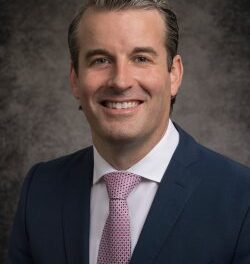 According to an Association for Healthcare Philanthropy report issued in October, Giving-USA for fiscal year 2011, donations to U.S. nonprofit hospitals and healthcare systems advanced 8.2 percent in 2011 and almost three in every 10 dollars raised were pledges including planned gifts, primarily bequests.
According to an Association for Healthcare Philanthropy report issued in October, Giving-USA for fiscal year 2011, donations to U.S. nonprofit hospitals and healthcare systems advanced 8.2 percent in 2011 and almost three in every 10 dollars raised were pledges including planned gifts, primarily bequests.
We are witnessing an increased interest in bequests at Holy Cross Hospital in Fort Lauderdale and there are several factors that will continue to encourage people to specify donations to charities in their wills and estate documents:
Baby Boom Fuels Bequest Boom: The Administration on Aging reports that by the year 2030, nearly one in five people will be 65 years or older. While I don’t believe there is an average age for donors arranging for charitable bequests, the demographic shift proves there will be a large number of people that will be involved in their transfer of wealth.
Living Longer: According the National Center for Health Statistics, the average life expectancy in the U.S. is 78.7 years. Those concerned with outliving their assets can have full use of them while alive while the bequest distributes the donation after their death.
No Longer All In the Family: A recent Time Magazine cover read “The Child Free Life: When Having It All Means Not Having Children,” and it is clear that the modern American family may no longer be a couple with 2 children. Researcher Russell N. James III released a study which found that people who didn’t have children or grandchildren were the most likely to make charitable bequests. Given two older individuals with similar demographic and financial backgrounds, the one who didn’t have children – or even a history charitable giving or volunteering – was more likely to make a bequest than the one with grandchildren who had a history of volunteering and making substantial gifts to charity.
Maintaining Control: People have a great desire to control what happens in their lives and manage their futures better. People can take some comfort in knowing they have made provisions for their estate and gifts to favorite charities.
Customized Giving: Bequests allow the giver to name the exact amount or percentage of the estate and the beneficiaries.
Creating a Legacy: The baby boomers and their children have grown up in a time of greater awareness of social issues and the role of non-profit organizations. I have noticed that even people in middle age are becoming more involved in creating a legacy and supporting the missions working in the areas of their specific interest.
Increased Estate Planning: People are reminded constantly about the need to have a will and many companies are offering the assistance in creating a will as a defined benefit of employment.
Enjoying the Benefits: Simply by providing a copy of the page from the will that shows the bequest to the charity, the donor can receive recognition of the gift in their lifetime along with the joy of celebrating with the charity and being appreciated for their donation.
While the above may support a continued increase in charitable bequests, there is a challenge: numerous surveys in recent years have reported that approximately 50 percent of Americans do not currently have wills. Therefore, making potential donors aware of the advantages of a charitable bequest offers an important opportunity to increase planned giving.


























